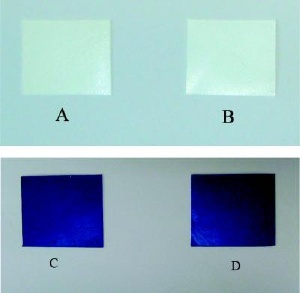Apr 20 2009
Scientists in South Dakota are reporting development of the first broad-spectrum antimicrobial paint, a material that can simultaneously kill not just disease-causing bacteria but mold, fungi, and viruses. Designed to both decorate and disinfect homes, businesses, and health-care settings, the paint is the most powerful to date, according to their new study. It appears in the current issue of the monthly ACS' Applied Materials + Interfaces. The paint shows special promise for fighting so-called "superbugs," antibiotic-resistant microbes that infect hospital surfaces and cause an estimated 88,000 deaths annually in the United States, the researchers say.
 A new antimicrobial paint could disinfect and decorate as it can kill harmful bacteria, fungi, mold and viruses. Credit: The American Chemical Society
A new antimicrobial paint could disinfect and decorate as it can kill harmful bacteria, fungi, mold and viruses. Credit: The American Chemical Society
In the study, Yuyu Sun and Zhengbing Cao note in the antimicrobial paints already on are store shelves. These paints, however, are only effective against a narrow range of disease-causing microorganisms, limiting their usefulness.
The scientists already were aware of research on the germ-killing effects of that N-halamines, bleach-like substances already in wide use. They developed a new antimicrobial polymer that includes a type of N-halamine. It has no undesirable effects on the quality of latex paints. Laboratory tests showed that the new polymer kills a wide range of disease-causing microbes including those resistant to multiple antibiotics. The paint retains an anti-microbial punch for extended periods, and it can be easily "recharged" with a simple chlorination process, the researchers note.